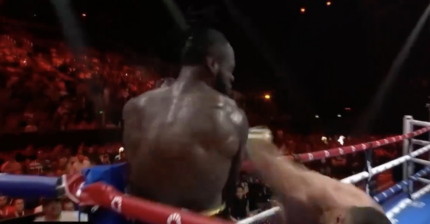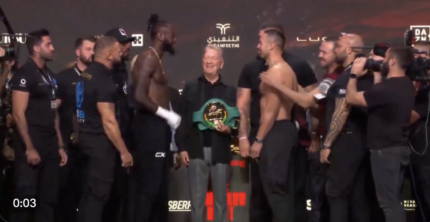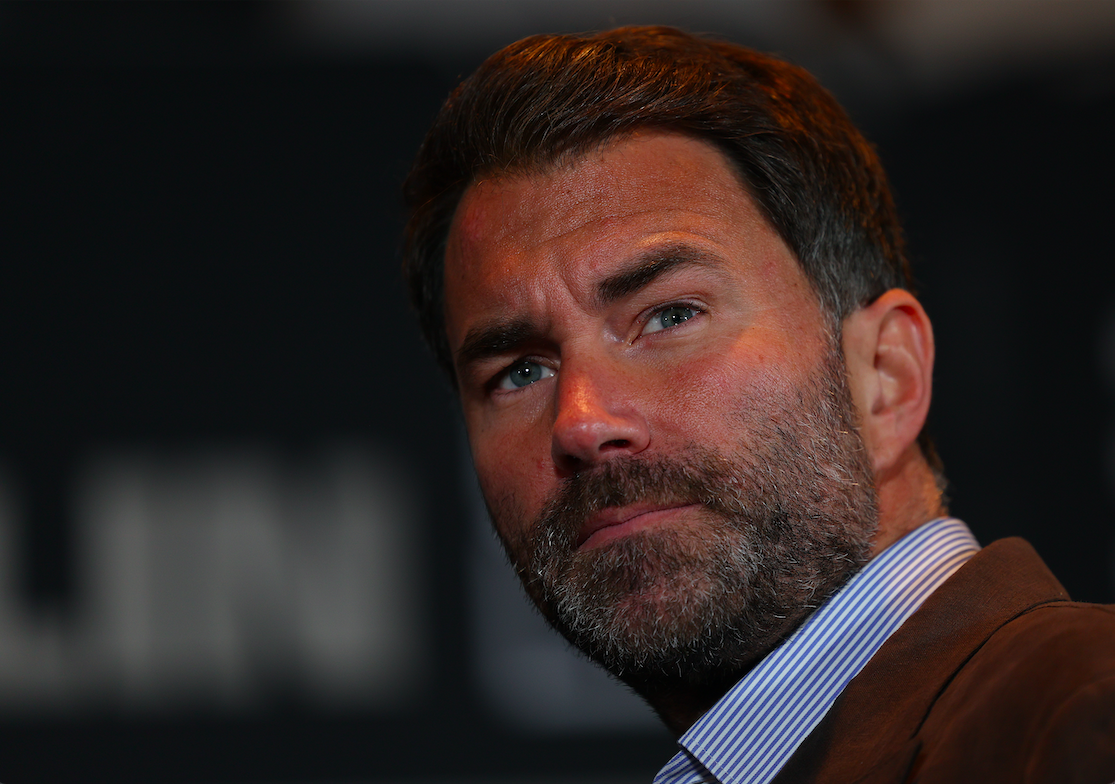What once made you a star can also make you a pariah.
Deontay Wilder has finally been embraced as America’s champion.
From his last outing against Tyson Fury, Wilder finally made the popular culture impact he was looking for.
An epic nail-biter fight that saw Wilder go viral when he uttered the three most powerful words of his career to a reporter, “Til’ This Day!”
[jwplayer aYjS3365-lHcfCBkA]
It was Wilder’s Cassius Clay to Muhammad Ali moment. A true evolution of a fighter seeking validation from a reluctant audience to a man on a personal mission that decided polarization was better sans strategy.
The Upgrade
Since then, Wilder has exploded onto America’s collective consciousness.
Wilder told TSL that he is going fully in with his Bomb Zquad Promotions after this weekend’s battle against rival Dominic Breazeale.
He is only negotiating one off deals with competitors who are looking for automatic rematch clauses and networks looking to air his fights like his preferred partner Showtime Sports.
Last week, Wilder appeared in an episode of Showtime drama BILLIONS, probably a token of appreciation for his loyalty to the network.
https://www.instagram.com/p/BxdLfGphrs3/?igshid=1x8wpoiaz3c20
This week, he helped promote Uninterrupted and HBO’s What’s My Name documentary, launched his clothing line in NYC and visited an inner-city school to inspire the youth.
However, polarization always has a pendulum effect.
The world first found out that Wilder and Breazeale had real smoke for each other back at a press conference in the Barclays Center to promote the fight on March 19th.
The two detailed their fateful run in after a February 25th, 2017 fight in Alabama where both were featured on the card. It began a beef that simmered, and once their pairing was announced, brewed over into the public eye.
This week during an open workout at Gleason’s Gym in Brooklyn, Wilder expressed a wish to exercise the death clause in boxing where fighters are liable for their own death when stepping in a ring.
Deontay Wilder on wanting to kill an opponent: “This is the only sport where you can kill a man and get paid for it at the same time…so why not use my right to do so?” #WilderBreazeale pic.twitter.com/Li5bcSdHEn
— Ryan Songalia (@ryansongalia) May 15, 2019
“His life is on the line for this fight and I do mean his life,” said Wilder.
“This is the only sport where you can kill a man and get paid for it at the same time; it’s legal. So why not use my right to do so.”
Despite his recent success and marketing, Wilder is still a dark-skinned, proud and vocal 6’7 fighter from Alabama. He is everything White America has been built to be afraid of.
Statements relating to a justifiable homicide of Dominic Breazeale are a horrible look and a way to turn back all of the positivity Wilder has gained. And with the history of boxing promotions, the chances that race will be injected into future narratives and promotions are increasing with each step Wilder takes.
With new levels of popularity come new pressures and Wilder will have to adjust to the pressure of selling a fight without sounding like a premeditated murderer.
The best example is Mike Tyson, who was once beloved then discarded by his home country after being dehumanized for his perceived viciousness.
What once made you a star can also make you a pariah.
There is a thin red line when you are a man of color that is feared for his masculinity. Wilder and his newfound status will need to be mindful of making a habit of crossing it as America decides whether it will cross him.



